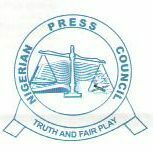Unarguably, the framing of news in political reporting goes a long way to influence the electorate as the media provides a link between the contestants and the public.
By Chijioke Okoronkwo & Yahaya Isah
Experts say that factual, objective and balanced stories will create an informed and objective electorate, while unfounded and biased reporting can cause misunderstanding and violence.
Ahead of the 2015 general elections, concerned organisations are not leaving any stone unturned in preparing journalists for effective political reporting.
Just before the June 21 Ekiti governorship election, the Nigerian Press Council (NPC), in collaboration with Diamond Publications Limited organised a training in Akure, Ondo State for journalists on political reporting.
Acting Executive Secretary of NPC, Mr Nnamdi Njemanze, who addressed the participants, advised media professionals to always find out the true nature of events before filing their reports.
Njemanze stressed the need for journalists not to allow their personal judgment to influence their reportage.
He said the training would go a long way in assisting the participants to prepare themselves ahead of 2015 general elections.
“The essence of the training is to sensitise participants to the challenges of political reporting and to remind them of the place of ethics in the profession,’’ he said.
Njemanze urged journalists to make “accuracy, fairness and balance their watch word.’’
Mr Muda Ganiyu, one of the resource persons, advised the participants to always insist on what “they saw and not what they were told.’’
Ganiyu said that journalists should at all times observe the ethics of the journalism profession.
“I want you to forget ethnicity, religion and socio-political and economic affiliations if you want to be good journalists.
“If we can forget about all these, the sky will be our starting point in journalism’’, he said.
He said journalists had a role to play in tackling corruption headlong by sensitising the public on the effect of corruption on the economy.
According to Ganiyu, it is the duty of journalists to gauge the mood of the people and report the government to the people and the people to the government.
He said that gauging public opinion was not about interviewing an individual, but about scientific means of helping those in government to know the true feelings of the people. He listed some of the means as vox pop, opinion polls, survey, forecast, observation, content analysis, among others.
Another resource person, Mr Maxim Uzoatu, urged journalists to avoid being partisan and report the entire process instead of depicting events.
He said that manifestoes of political parties must be x-rayed in relation to the promises of the candidates while the transition of an aspirant to a candidate must be examined in tune with adherence to internal democracy of the political party.
“The umpire, the Independent National Election Commission (INEC), should be given round-the-clock scrutiny.
“Any attempt at bias must be exposed by the vigilant press; from the umpire down to the actual contestants who have thrown their political hats into the ring, there should be total coverage in regard to playing to the rules of the game.
“In the coverage of elections, reporters must have complete mastery of the electoral act and the country’s constitution,’’ Uzoatu stressed.
In a communiqué issued at the end of workshop and signed by Njemanze, journalists were urged to set agenda for the political class by scientifically identifying issues of public interest.
It decried a situation where politicians now set agenda for the media.
It urged journalists to always ask relevant and probing questions from politicians and compare their electoral promises with their performance in office.
“In fulfillment of their role as educators, journalists should study and understand the electoral law and explain it to the people.”
The communiqué called on the Nigerian Press Organisation (NPO) to come up with guidelines that could serve as parameters for election reporting in the country.
It said such guidelines would stop media owners and controllers from using their platforms for pecuniary interests.
“Reporters have great power and they must be encouraged to wield it in an ethical and professional manner; conscious that inaccurate election reportage can trigger avoidable violence.
“The media and journalists should gauge the mood of the electorate to ensure that the voices of the people are actually heard during elections through opinion polls and observations.
“Political reporters and columnists should be careful with their use of language and pursue decorum, decency and professionalism.”
The communiqué also reminded journalists of the danger involved in using violent language in reporting political activities.
It warned public-owned broadcasting stations to conduct their activities with utmost professionalism and give equal access to the various candidates and their parties.
“Media owners and managers should exercise utmost restraint in their conduct and avoid using the media to pursue preconceived pecuniary political gains at the expense of national interest.
“Media professionals should be paid regularly and promptly and not subjected to undignified treatment that could encourage corruption,’’ the communiqué further stated.
Stakeholders want the Nigerian Press Council to sustain training workshops for journalists on political reporting ahead of the 2015 general election.
Sustenance of training they say, will help to adequately equip journalists to effectively cover the 2015 general elections.
(NANFeatures)

